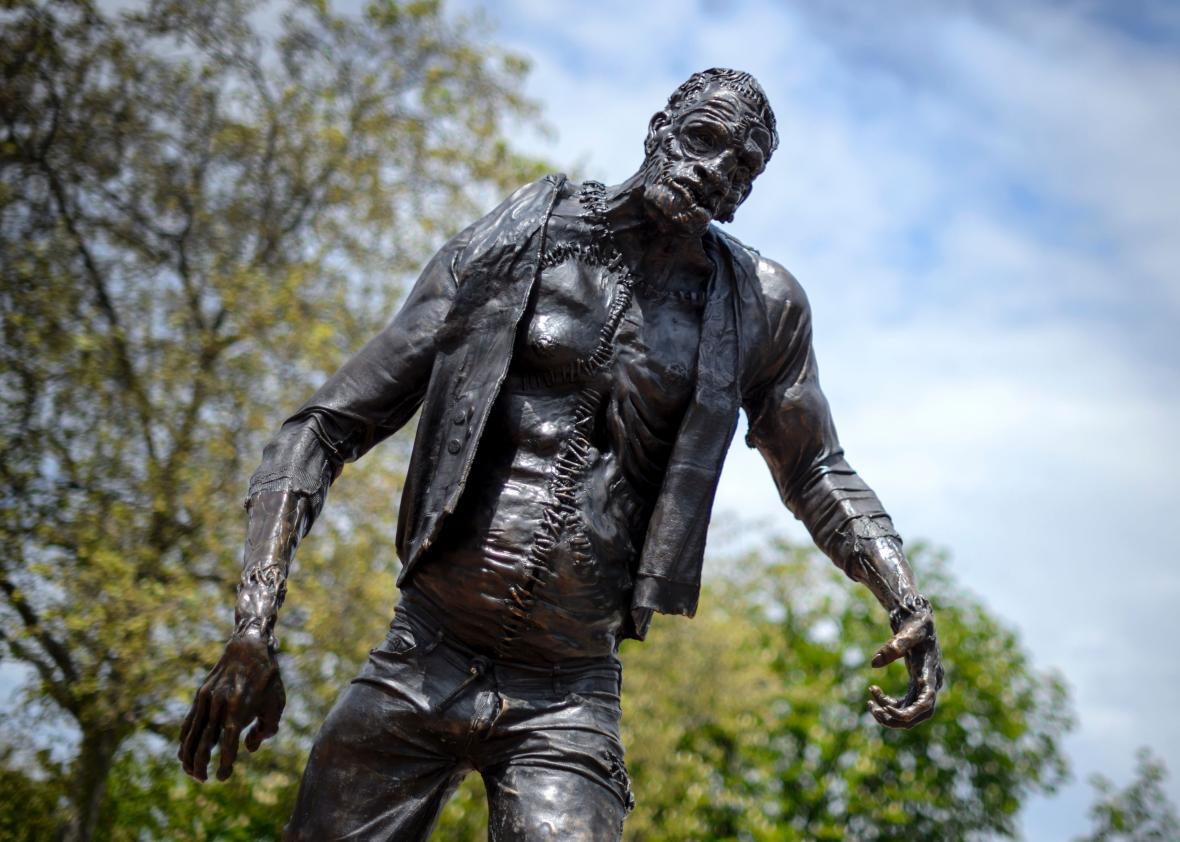Happy New Year, Future Tensers!
What better way to kick off 2017 than beginning the latest installment of Futurography—our online course offering monthly breakdowns of the science and tech topics that define our time. This month we’re taking a look at how Mary Shelley’s Frankenstein, first published 199 years ago, continues to affect the way we think about scientific and technological innovation. We’ll start you off with a conversational introduction and cheat sheet to guide you through the key players, lingo, and major debates around the topic. The rest of the month we’ll post pieces reflecting on the legacy of Shelley’s novel, and we’ll close the course with a live event in Washington, D.C. on Feb. 2.
Even though 2016 is over, you may still be looking for answers to why it was such a bad year. Whitney Phillips and Ryan M. Milner suggest looking to Poe’s law—a decade-old internet adage—to offer an explanation. But 2016 wasn’t all that terrible; we did see some great memes come out of our shared misfortune. Plus there is a lot to look forward to in the New Year, specifically the reemergence of psychedelic drugs for therapeutic use. Groovy.
Here are some other articles you may have missed over the holidays:
- The 2011 hack that changed the internet: Josephine Wolff tells the story of a little-known breach that led to critical changes to the internet’s infrastructure.
- Media literacy: A pilot program is being launched in schools to teach high-school students how to spot fake news online. It’s probably safe to say we could all use a lesson.
- Citizen science: Darlene Cavalier and Jason Lloyd argue that now more than ever, scientists should be engaging the public with their work.
- Organ shortages: Driverless cars are sure to change the way we live and the way we die. An unexpected consequence of the reduction of road deaths could lead to a dire shortage in organ donation unless we prepare now, argue Ian Adams and Anne Hobson.
Events:
- Join Terrell McSweeny, a commissioner with the Federal Trade Commission, for the latest installment of our “My Favorite Movie” series. She’ll be hosting a screening of The Adventures of Buckaroo Banzai Across the 8th Dimension at Washington, D.C.’s Landmark E Street Cinema on Jan. 12. Learn how to RSVP here.
- Will the internet always be American? On Tuesday, Jan. 24, Future Tense will host a live event in Washington, D.C., to explore the internet’s nationality, the extent to which it’s an expression of American culture, and how that may be changing. You can RSVP to attend in person or watch online here.
Pushing my cat out of the way,
Emily Fritcke
for Future Tense
Future Tense is a partnership of Slate, New America, and Arizona State University.
